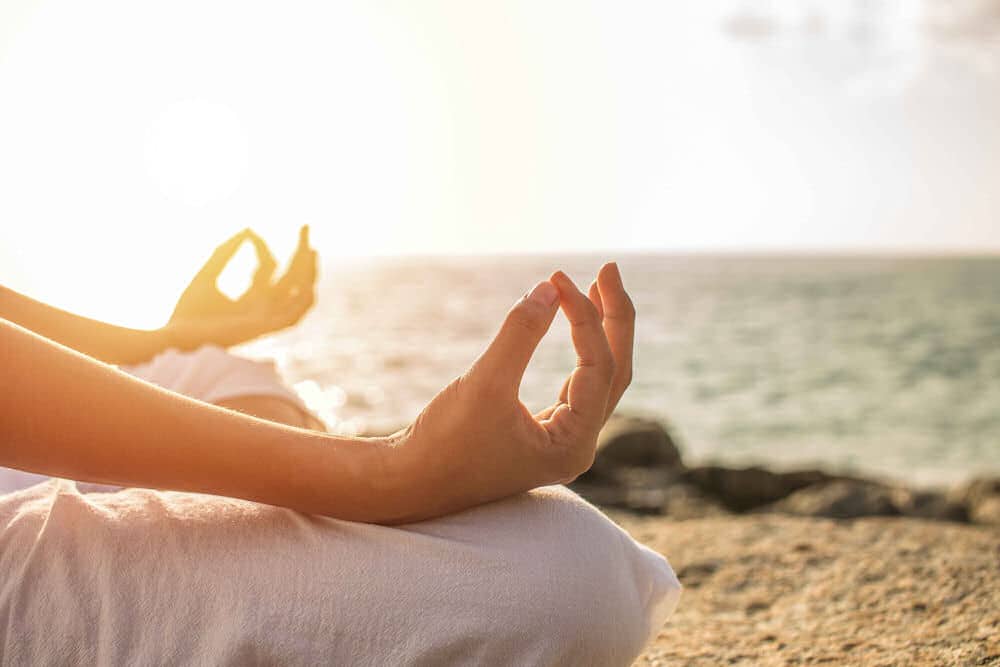In a culture where alcohol frequently serves as a go-to for socializing or stress relief, seeking alternatives to unwind without relying on it is essential for those pursuing sobriety or even simply aiming to cut back on drinking. Below are some different ideas and diverse activities for relaxation, effective strategies to maintain sobriety, practical tips for preventing relapse, and recognizing when additional support might be needed.
10 Activities to Relax Without Alcohol
Engage in mindfulness meditation to cultivate present-moment awareness and inner peace. Discover a serene environment, center your attention on your breathing, and calmly observe your thoughts without passing judgment. Regular practice can reduce stress and promote relaxation. As you deepen your practice, you may notice increased clarity of mind and a greater capacity for compassion towards yourself and others.
Engaging in physical activity triggers the release of endorphins, which are the body’s natural mood enhancers. Whether it’s a brisk walk, yoga, or weightlifting, exercise not only improves physical health but also enhances mental well-being and helps alleviate stress. Additionally, incorporating variety into your exercise routine can keep it enjoyable and sustainable over the long term, leading to lasting benefits for both body and mind.
Discover your artistic expression by engaging in activities such as painting, writing, or playing a musical instrument. Channeling emotions into art can be therapeutic and provide a healthy outlet for stress. As you delve deeper into your chosen creative pursuits, you may discover new facets of yourself and experience a profound sense of fulfillment from expressing your innermost thoughts and feelings.
Being in nature has been proven to lower cortisol levels and encourage relaxation. Take a leisurely walk in a park, hike a scenic trail, or simply sit by a lake and soak in the tranquility of the outdoors. Connecting with the natural world can inspire awe and wonder, fostering a sense of connection to something greater than yourself and offering a respite from the hustle and bustle of daily life.
Treat yourself to a soothing hot bath or shower to unwind after a long day. Add some Epsom salts or essential oils for added relaxation, and let the warm water melt away tension. Creating a spa-like atmosphere with soft lighting and calming music can further enhance the experience, allowing you to fully indulge in self-care and rejuvenate both body and mind.
Enjoy the company of friends and family without the need for alcohol. Plan activities like board game nights, movie marathons, or outdoor picnics where the focus is on connection rather than drinking. Building meaningful relationships based on shared interests and genuine connections can provide a sense of belonging and support, bolstering your overall well-being.
Sip on herbal teas like chamomile, lavender, or peppermint, known for their calming properties. Create a cozy tea-drinking ritual to relax and unwind at the end of the day. Taking a moment to pause and savor the aroma and flavor of your favorite tea can serve as a mindful practice, allowing you to fully immerse yourself in the present moment and cultivate a sense of calm amidst the busyness of life.
Write down your thoughts, feelings, and experiences in a journal. Journaling can help process emotions, gain clarity, and reduce stress. Try writing gratitude lists or affirmations to cultivate a positive mindset. Reflecting on past entries can also provide insight into patterns of thinking and behavior, empowering you to make positive changes and live more intentionally.
Helping others can be immensely rewarding and fulfilling. Volunteer at a local charity, animal shelter, or community garden to contribute to a cause you care about while also experiencing a sense of purpose and connection. Engaging in acts of service cultivates empathy and compassion, enriching your worldview and enhancing your sense of belonging in society.
Stimulate your mind and distract yourself from cravings by learning a new skill or hobby. Whether it’s cooking, photography, or a new language, embracing lifelong learning can be both enjoyable and therapeutic. Setting small, achievable goals and celebrating your progress along the way can boost self-confidence and motivation. This makes the learning process more rewarding.
How to Maintain Your Sobriety
Maintaining sobriety in the context of alcohol can be challenging but achievable with the right strategies. Here are three effective ones:
Learn about addiction, recovery, and the factors that contribute to substance use disorders. Understanding the science behind addiction, as well as common triggers and risk factors, can empower you to make informed decisions and navigate challenges more effectively. Consider attending educational workshops, reading books, or seeking information from reputable sources.
Establish short-term and long-term goals related to your sobriety journey. Whether it’s staying sober for a certain period of time, improving relationships, or achieving personal milestones, having goals can provide motivation and direction. Track your progress regularly to celebrate achievements and stay focused on your journey.
Stay actively involved in your recovery journey by attending support group meetings, therapy sessions, or counseling sessions regularly. Engage in activities and programs that reinforce your commitment to sobriety, such as participating in sober social events, volunteering, or pursuing new hobbies. Continuous engagement in recovery activities can provide ongoing motivation and reinforcement of positive behaviors.
Enhance sobriety by integrating these strategies into daily life. Thrive in the recovery journey through consistent implementation of these methods.
How to Prevent Relapse

Preventing relapse in alcohol addiction requires a multifaceted approach. Firstly, it’s vital to identify triggers that may lead to drinking, whether they’re stressors, social situations, or emotional cues. Building a strong support system comprising understanding friends, and family, or participation in support groups like Alcoholics Anonymous can provide invaluable assistance during challenging times. Additionally, developing coping mechanisms such as mindfulness, exercise, or engaging in hobbies helps manage stress and negative emotions without resorting to alcohol.
Secondly, establishing structure in daily life is paramount. Creating a routine that includes healthy habits like regular exercise, proper nutrition, and sufficient sleep can minimize idle time, reducing the likelihood of succumbing to cravings. It’s also essential to avoid high-risk situations where alcohol is readily available, and if unavoidable, having an exit plan and supportive companions can provide a safety net. Seeking professional help through therapy or counseling helps address underlying issues in alcohol addiction and offers personalized strategies for sobriety maintenance.
Lastly, self-care plays a crucial role in preventing relapse. Prioritizing activities that promote overall well-being, practicing self-compassion, and setting realistic goals are essential components of self-care. Staying connected with a recovery community, celebrating successes, and learning from setbacks contribute to long-term sobriety. Planning to cope with urges and seeing relapse as part of recovery fosters resilience on the journey to sobriety.
When to Get Additional Support
If you’ve developed a dependency on alcohol it’s essential to seek support. Recognizing when to reach out for assistance with alcohol addiction is vital for your well-being and recovery journey. Here are some signs indicating it’s time to seek professional help:
- Increased Tolerance: Needing more alcohol for the same effects signals developing tolerance and potential dependency.
- Withdrawal Symptoms: Experiencing physical or psychological symptoms when attempting to cut down indicates alcohol dependency.
- Loss of Control: Consistently drinking more than intended suggests a lack of control over alcohol consumption.
- Neglecting Responsibilities: Alcohol interfering with work, school, or home life, such as missing deadlines or neglecting duties, indicates a problem.
- Increased Risky Behavior: Engaging in risky behaviors under the influence, like drunk driving or unprotected sex, signals intervention needs.
- Health Issues: Alcohol abuse can lead to health problems such as liver damage or mental health issues like depression.
- Relationship Problems: Alcohol abuse strains relationships with family, friends, or partners, causing conflicts or distance.
- Failed Attempts to Quit: Unsuccessful attempts to cut down or quit drinking suggest the need for professional assistance.
- Preoccupation with Alcohol: Spending significant time thinking about drinking or recovering from its effects indicates a problematic relationship.
- Denial or Rationalization: Denying the severity of drinking habits or rationalizing them despite negative consequences can hinder seeking help.
Recognizing signs and admitting you need help is the first step to recovery. Professional assistance and support groups aid in overcoming alcohol addiction, offering guidance to regain control of life.
Discover Supportive Community and Lasting Sobriety at Monroe Street Housing
Learn healthy ways to unwind at Monroe Street Housing. Contact Monroe Street Housing today to discover effective relaxation techniques that nurture your mind, body, and spirit without the alcohol. Take the first step towards a fulfilling, sober lifestyle today.














